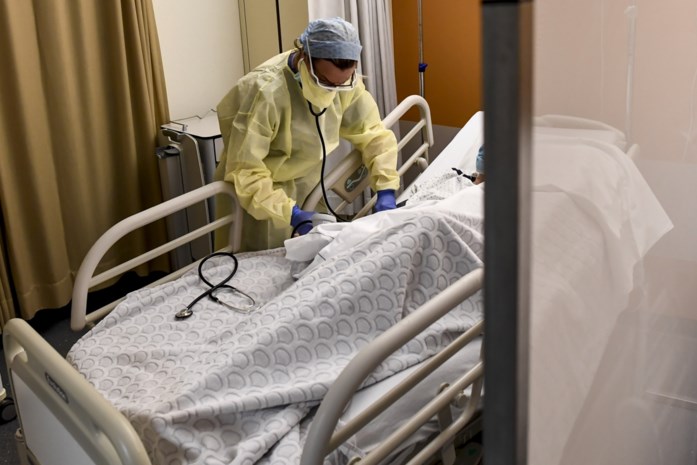Six months after becoming infected with the coronavirus, at least one in seven people still show symptoms connected to the infection, varying from excessive fatigue to memory problems.
Although this condition, known as long-term Covid, can affect people in all age groups, it is most common in patients between the ages of 35 and 69, a recent survey by Belgium's Federal Knowledge Centre for Health (KCE) found. The chances of developing long-term Covid are "significantly higher in patients who were hospitalised during the acute phase."
"In general, long-term Covid leads to a marked reduction in quality of life, a certain loss of autonomy and difficulties in returning to work," the report stated about Belgian cases of the condition.
The online survey of 1,320 people showed that people with long-Covid said their physical state had deteriorated, citing abnormal, excessive fatigue that does not improve even after resting, or abnormal shortness of breath, "even in people who were previously very athletic."
Related News
- Highest number of new Covid-19 cases recorded since November 2020
- New, reportedly more contagious Delta mutation being monitored
The condition often also results in psychological symptoms, including memory and concentration problems, which are grouped together in the research under the term "brain fog."
The KCE stated that several mechanisms are involved in developing these long-term symptoms, including organ damage caused by the infection; immune, inflammatory and autoimmune reactions to the infection, as well as an exacerbation of pre-existing diseases following an infection, but stressed that these theories are still hypothetical.
Earlier this month, the World Health Organisation (WHO) developed a clinical case definition of the "post-Covid-19" condition, developed by patients, researchers and other experts in health care.
The WHO stressed that "the definition may change as new evidence emerges and our understanding of the consequences of COVID-19 continues to evolve."
Receiving help in Belgium
In Belgium, patients reported feeling "anxious about how long the symptoms will last and how they will deal with negative reactions (e.g. disbelief, stigma) in their social or professional environment."
"Patients also reported that they often feel lost in our health care system and that there is a lack of a global approach to their problems," the survey statement read, adding that it found the condition "leads to a marked reduction in quality of life and often causes difficulties in returning to work."
The KCE stressed that there is a lack of information, which was also highlighted by patients, as the condition is relatively new. But, "patients now expect the government to provide correct information about what is known (and not known) about long-term Covid," the report read.
As a result of this survey, the experts recommended the development of reliable and accessible information materials and awareness-raising campaigns.
The KCE is also calling for patients to receive a global functional assessment via their general practitioner, which would allow them to be referred to "appropriate, tailor-made care organised in a coordinated manner," which would include receiving help from a physiotherapist or psychologist, and a more multi-disciplinary team of experts for more severe cases.
"This assessment would take place in specialised centres, but the prescribed treatment and follow-up should take place in primary care as much as possible," the KCE recommended in the report.
Until a more efficient approach is developed when it comes to financing the treatment for the condition, the KCE recommended that "certain rehabilitation care that has not yet been reimbursed must be reimbursed."

